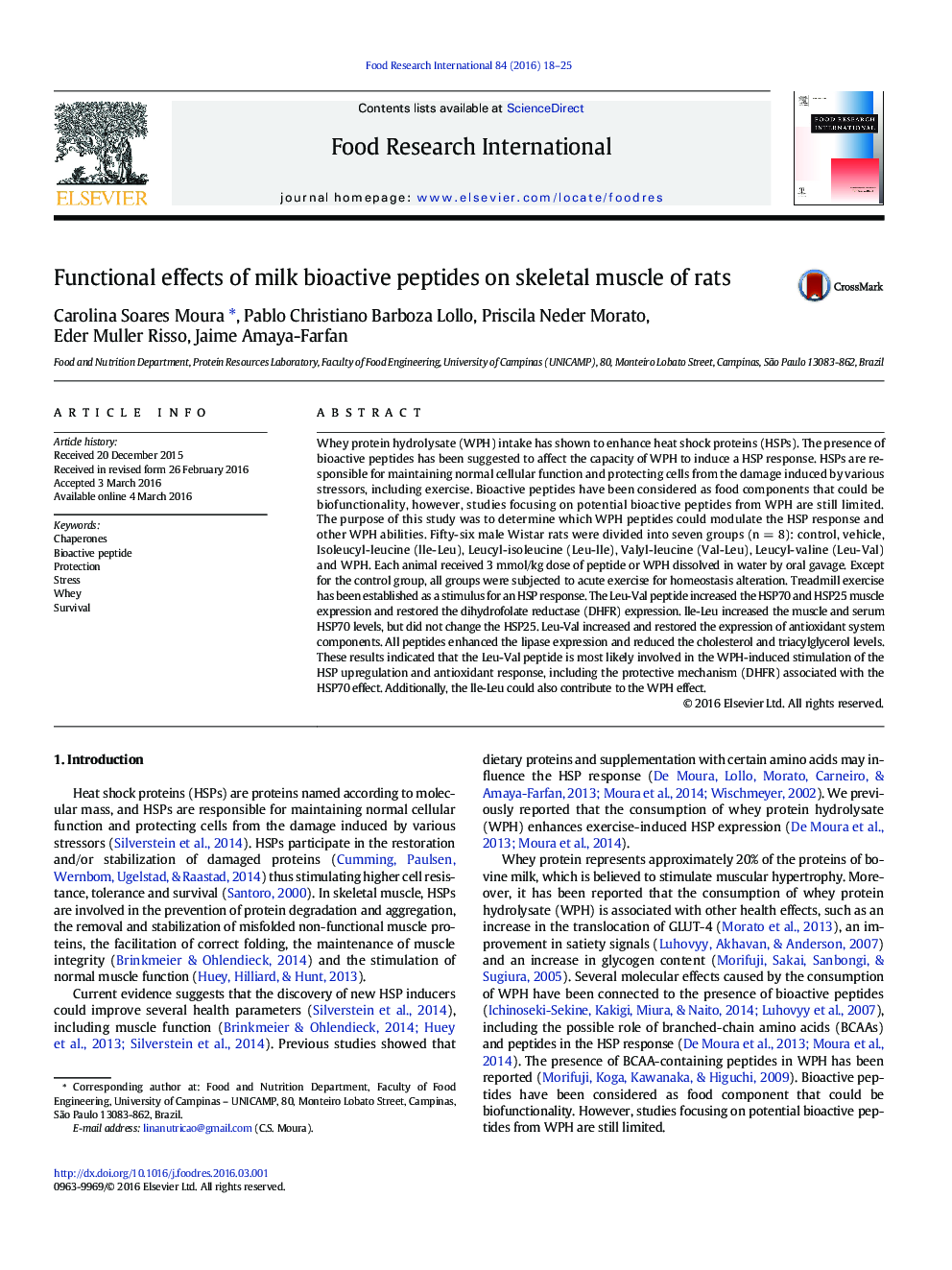| Article ID | Journal | Published Year | Pages | File Type |
|---|---|---|---|---|
| 4561143 | Food Research International | 2016 | 8 Pages |
•Leucyl-valine peptide enhances HSP70 and HSP25 muscle expression in Wistar rats.•Leucyl-valine peptide increases and restores antioxidant system expression.•Leucyl-valine peptide restores dihydrofolate reductase (DHFR) expression.•Isoleucyl-leucine increases HSP70 in muscle and serum, but did not change HSP25.•Leucyl-valine peptide enhances tissue protection and promotes anti-stress effect.
Whey protein hydrolysate (WPH) intake has shown to enhance heat shock proteins (HSPs). The presence of bioactive peptides has been suggested to affect the capacity of WPH to induce a HSP response. HSPs are responsible for maintaining normal cellular function and protecting cells from the damage induced by various stressors, including exercise. Bioactive peptides have been considered as food components that could be biofunctionality, however, studies focusing on potential bioactive peptides from WPH are still limited. The purpose of this study was to determine which WPH peptides could modulate the HSP response and other WPH abilities. Fifty-six male Wistar rats were divided into seven groups (n = 8): control, vehicle, Isoleucyl-leucine (lle-Leu), Leucyl-isoleucine (Leu-lle), Valyl-leucine (Val-Leu), Leucyl-valine (Leu-Val) and WPH. Each animal received 3 mmol/kg dose of peptide or WPH dissolved in water by oral gavage. Except for the control group, all groups were subjected to acute exercise for homeostasis alteration. Treadmill exercise has been established as a stimulus for an HSP response. The Leu-Val peptide increased the HSP70 and HSP25 muscle expression and restored the dihydrofolate reductase (DHFR) expression. lle-Leu increased the muscle and serum HSP70 levels, but did not change the HSP25. Leu-Val increased and restored the expression of antioxidant system components. All peptides enhanced the lipase expression and reduced the cholesterol and triacylglycerol levels. These results indicated that the Leu-Val peptide is most likely involved in the WPH-induced stimulation of the HSP upregulation and antioxidant response, including the protective mechanism (DHFR) associated with the HSP70 effect. Additionally, the lle-Leu could also contribute to the WPH effect.
